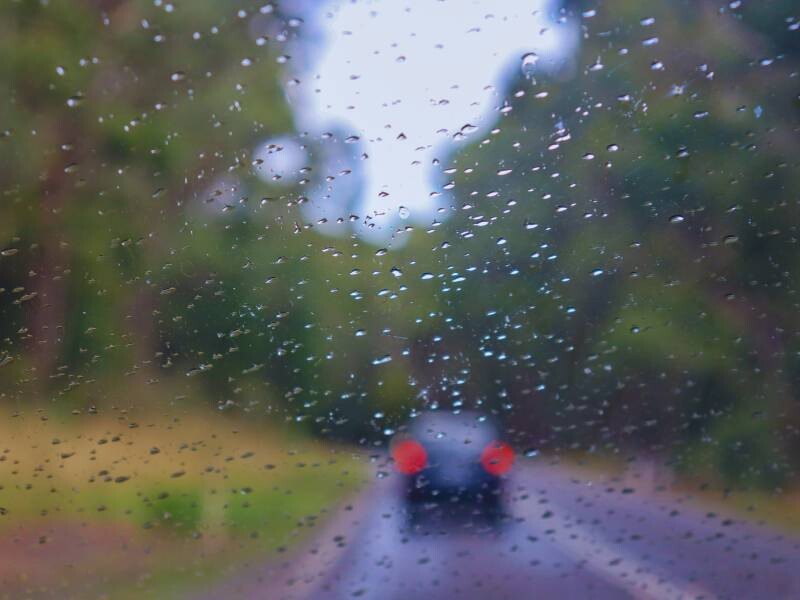After a stretch of wet weather, the Moreton Bay Shire’s Ningi enjoyed a much-needed sunny day, creating the perfect conditions for East Coast Traffic Control to resume maintenance works with Energy Queensland. The brief reprieve from the rain allowed our dedicated team to make significant progress, ensuring projects remain on track with minimal disruptions. But as we edge deeper into Queensland’s notorious cyclone season, it’s a timely reminder to prioritise safety and preparedness.
Cyclone season, running from November 1 to April 30, brings increased risks of heavy rains, flooding, and destructive winds. Whether you’re in Moreton Bay, Sunshine Coast, or North Queensland, taking proactive steps can make all the difference in protecting lives and property during these extreme weather events.
Cyclone Preparedness: Practical Safety Tips
Here are some essential steps to prepare yourself, your family, and your property for Queensland’s cyclone season:
Secure Your Home
- Fasten cyclone screens, board up windows and doors, and seal seep holes.
- Apply plastic sheeting to the inside of windows to minimise water damage.
- Secure outdoor furniture and loose items that could become projectiles in strong winds.
Prepare an Emergency Plan
- Involve your neighbours and friends in your planning.
- Keep an emergency kit ready in a safe, easily accessible place.
- Plan evacuation routes and identify local shelters.
Prepare Your Vehicle
- Park in a sheltered area away from trees, powerlines, and waterways.
- Keep your vehicle’s fuel tank at least half full.
- Pack an emergency kit for your car, including water, a first-aid kit, and a torch.
Prepare Electrical Equipment
- Install a safety switch and test it regularly.
- Unplug outdoor TVs, non-fixed aerials, and other electronics.
- Store electronics in a dry, elevated area to avoid water damage.
Prepare Utilities
- Familiarise yourself with how to disconnect your gas, electricity, solar power, and water services.
- Ensure tools needed for disconnection are readily available.
Stock Up on Supplies
- Include essential items like bottled water, non-perishable food, waterproof matches, warm clothing, and toiletries in your emergency kit.
- Keep hard copies of important documents in waterproof bags.
Don’t Forget Pets
- Make arrangements to shelter and secure your pets and livestock.
- Prepare food, water, and bedding for your animals.
Ensure Communication
- Keep your mobile phone charged and nearby.
- Consider investing in a portable power bank or backup communication devices.
Backup Power Supply
- Invest in a battery-powered “Uninterruptible Power Supply” (UPS) or a portable generator to power essential appliances during outages.
Traffic Control: An Essential Part of Cyclone Preparedness
During cyclone season, East Coast Traffic Control plays a vital role in ensuring safe roadways for Queenslanders. From managing traffic flow during emergency response operations to providing clear pathways for crews restoring power and infrastructure, our team is on the frontline, supporting communities across the state.
In areas like Ningi, Sunshine Coast, and North Queensland, our traffic controllers work tirelessly to minimise disruptions caused by flooding or storm damage. Ensuring safe and efficient traffic management helps communities recover faster and keeps emergency services moving smoothly.
Why Every Sunny Day Counts During Cyclone Season
While clear skies in Ningi provided an opportunity to make up for lost time, such days are rare during Queensland’s wet season. Traffic control teams must seize these moments to prepare and maintain infrastructure before the next storm hits. Whether it’s ensuring signage is secure or planning alternate routes for potential road closures, proactive traffic management is critical during this time of year.
Looking Ahead: Stay Prepared, Stay Safe
Cyclone season is a part of life in Queensland, but preparation and vigilance are key to staying safe. At East Coast Traffic Control, we are committed to supporting Queenslanders by maintaining safe roadways and assisting emergency response efforts. Let’s work together to navigate this challenging season safely and effectively.
FAQs
- Why is cyclone preparation so important in Queensland?
Queensland’s cyclone season brings heavy rains, strong winds, and flooding, which can disrupt roads and infrastructure. Preparation helps protect lives and property. - What areas does East Coast Traffic Control serve during cyclone season?
We serve regions across Queensland, including Moreton Bay, Sunshine Coast, Townsville, Cairns, and North Queensland, as well as Northern NSW. - How can I prepare my vehicle for cyclone season?
Park your vehicle in a sheltered area, avoid low-lying flood-prone areas, and ensure you have an emergency kit on board. - What role does traffic control play during cyclones?
Traffic control ensures roads remain safe by managing closures, directing traffic, and enabling emergency crews to access affected areas. - How can I stay updated on road closures and weather conditions?Follow updates from the Queensland Government’s traffic and weather websites and local council alerts.





